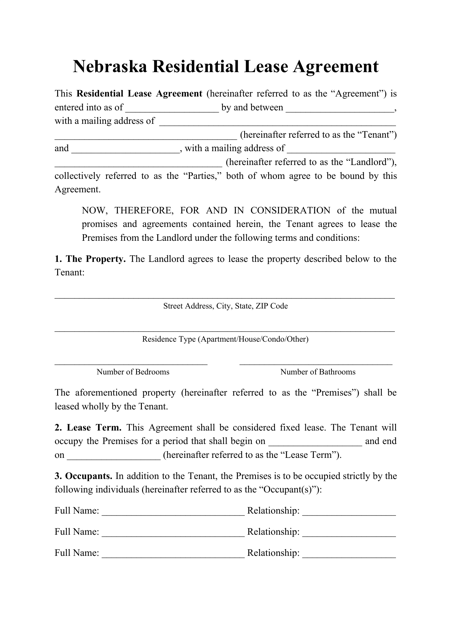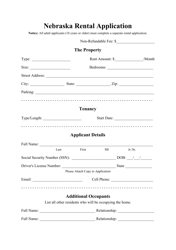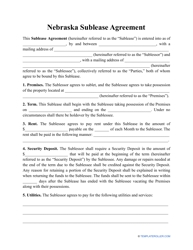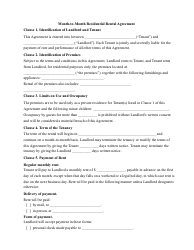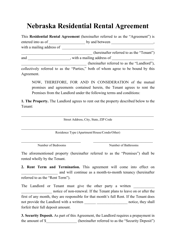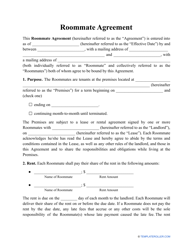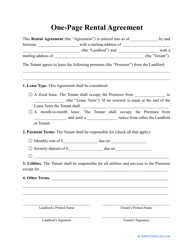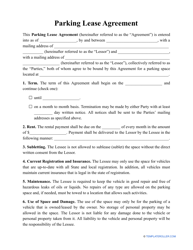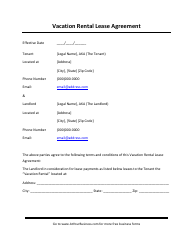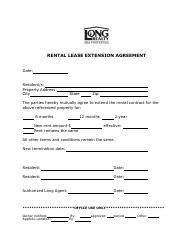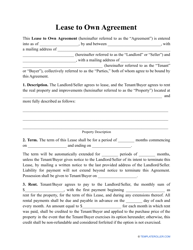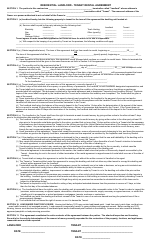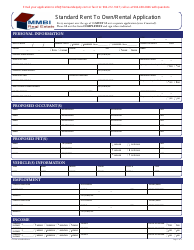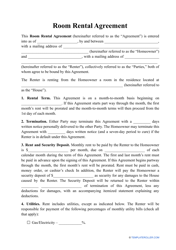Residential Lease Agreement Template - Nebraska
A Residential Lease Agreement Template for Nebraska is a legal document used for renting a residential property in Nebraska. It outlines the terms and conditions of the rental agreement between the landlord and the tenant, including rent, duration of the lease, responsibilities of both parties, and other important details.
The residential lease agreement template in Nebraska is typically filed by the landlord or property owner.
FAQ
Q: What is a residential lease agreement?
A: A residential lease agreement is a legally binding contract between a landlord and a tenant, outlining the terms and conditions for renting a residential property.
Q: Why do I need a lease agreement?
A: A lease agreement helps protect the rights and interests of both the landlord and the tenant. It ensures that both parties understand their responsibilities and rights during the rental period.
Q: What does a residential lease agreement typically include?
A: A residential lease agreement typically includes information such as the names of the landlord and tenant, the property address, the rental term, the rent amount, and the rules and regulations for the property.
Q: Can a lease agreement be modified?
A: Yes, a lease agreement can be modified if both the landlord and the tenant agree to the changes. It is important to document any modifications in writing to avoid any misunderstandings.
Q: What happens if a tenant breaks the lease agreement?
A: If a tenant breaks the lease agreement, they may be responsible for paying the remaining rent owed, as well as any penalties or fees outlined in the agreement. The landlord may also have the right to evict the tenant.
Q: Can a landlord terminate a lease agreement?
A: In some cases, a landlord can terminate a lease agreement if the tenant violates the terms of the agreement, fails to pay rent, or causes significant damage to the property. However, the landlord must follow the legal procedures for eviction.
Q: Is it necessary to have a written lease agreement?
A: While a verbal agreement may be legally binding, it is always recommended to have a written lease agreement. A written agreement provides clear documentation of the terms and conditions agreed upon by both the landlord and the tenant.
Q: Can a landlord increase the rent during the lease term?
A: In most cases, a landlord cannot increase the rent during the lease term, unless specified in the lease agreement. However, they may be able to increase the rent when the lease is up for renewal.
Q: What are the tenant's rights in a lease agreement?
A: The tenant's rights in a lease agreement include the right to a habitable living space, privacy, and the right to proper notice before any changes or termination of the lease. Tenants also have the right to be free from discrimination.
Q: What are the landlord's responsibilities in a lease agreement?
A: The landlord's responsibilities in a lease agreement include maintaining the property in a habitable condition, making necessary repairs, and addressing any health or safety concerns. They must also respect the tenant's privacy rights.
